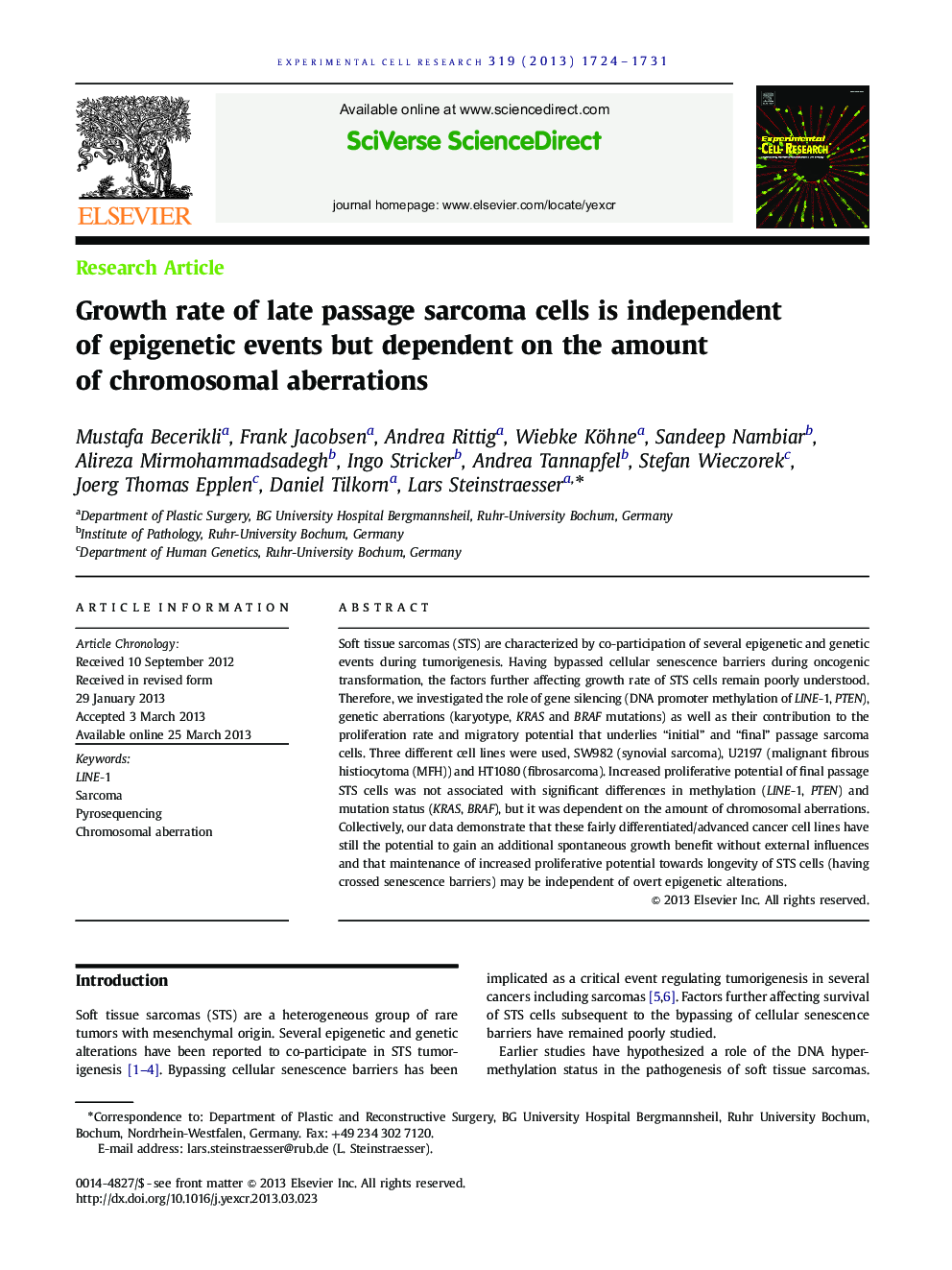| Article ID | Journal | Published Year | Pages | File Type |
|---|---|---|---|---|
| 10904245 | Experimental Cell Research | 2013 | 8 Pages |
Abstract
Soft tissue sarcomas (STS) are characterized by co-participation of several epigenetic and genetic events during tumorigenesis. Having bypassed cellular senescence barriers during oncogenic transformation, the factors further affecting growth rate of STS cells remain poorly understood. Therefore, we investigated the role of gene silencing (DNA promoter methylation of LINE-1, PTEN), genetic aberrations (karyotype, KRAS and BRAF mutations) as well as their contribution to the proliferation rate and migratory potential that underlies “initial” and “final” passage sarcoma cells. Three different cell lines were used, SW982 (synovial sarcoma), U2197 (malignant fibrous histiocytoma (MFH)) and HT1080 (fibrosarcoma). Increased proliferative potential of final passage STS cells was not associated with significant differences in methylation (LINE-1, PTEN) and mutation status (KRAS, BRAF), but it was dependent on the amount of chromosomal aberrations. Collectively, our data demonstrate that these fairly differentiated/advanced cancer cell lines have still the potential to gain an additional spontaneous growth benefit without external influences and that maintenance of increased proliferative potential towards longevity of STS cells (having crossed senescence barriers) may be independent of overt epigenetic alterations.
Related Topics
Life Sciences
Biochemistry, Genetics and Molecular Biology
Cancer Research
Authors
Mustafa Becerikli, Frank Jacobsen, Andrea Rittig, Wiebke Köhne, Sandeep Nambiar, Alireza Mirmohammadsadegh, Ingo Stricker, Andrea Tannapfel, Stefan Wieczorek, Joerg Thomas Epplen, Daniel Tilkorn, Lars Steinstraesser,
